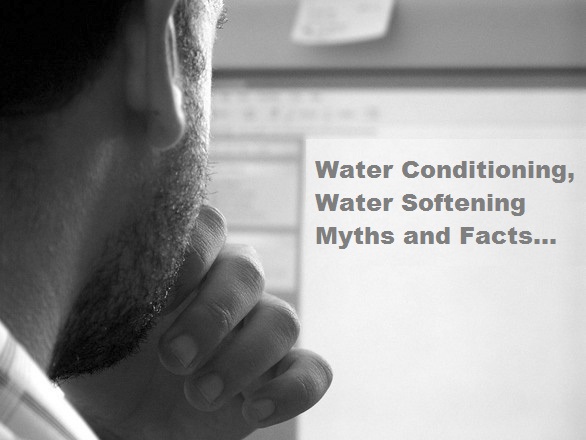With more than 30 years’ experience in the residential and commercial water treatment industry, Mark Nelson is a Class 1 Drinking-Water Operator and a CBWA (Canadian Bottled Water Association) Certified Plant Operator. As founder and president of Nelson Water in Ottawa, Mark focuses on dealing with challenging water treatment system designs for problem water. He also heads the largest water bottling plant in the city of Ottawa with a delivery network throughout the Valley.
Water Conditioning, Water Softening Myths and Facts
Here are some myths and facts to separate FACT from FICTION.
Myth: Everything called a “water softener” is the same.
Fact: Wrong. There are actually several types of “water softeners”, but not all are the same.
Water “softener or conditioner” could be a scientific term, but is also largely a marketing one. There are a lot of different products on the market that have or use this name. The methods by which they soften or condition water, however, are not the same and, in fact, may not actually soften water at all, though the unsuspecting consumer who buys them likely is led to believe that those products do produce softened water.
Myth: Ion exchange softeners are the only way to soften water.
Fact: Ion exchange softeners are widely accepted as the most effective way to soften water.
These devices work by exchanging the calcium and magnesium ions in the water with sodium ions. On occasion they exchange them with potassium ions, as well. The end result is that the hardness of the water is appreciably reduced and all the associated hard water problems are also diminished or eliminated overall.
There are other ways that water may be softened or conditioned on an industrial scale , however not in a practical consumer application.
Myth: All softened or conditioned water is the same.
Fact: Actually that is not factually correct. Not all softened water is the same.
Softened or conditioned water, as noted above, has the calcium and magnesium ions exchanged for sodium or potassium ions or is otherwise treated in ways that increase sodium content. If there is too much sodium in the water, it can become undrinkable. Quality water softeners are engineered to not only eliminate hard water issues, but in some case, if they have a coconut shell carbon media to produce higher quality water for drinking purposes by eliminating the chlorine and chloramines present in municipal water supplies. We refer to these as water refiners.
Myth: Hard water is just an inconvenience.
Fact: Hard water can actually lead to expensive damage in very real ways over time.
Hard water affects everything in a home or business from how well soap and shampoo lather to how much you spend on energy costs. For example, according to the Chicago Tribune, every 5 grains per gallon of hardness = to an 8% drop in efficiency for your hot water heater, which translates to an 8% increase in operating costs. Over time, that can add up to real money. In addition, hard water can cause real damage to water using appliances, pipes and other devices in your home and manufacturing processes. As the hard water forms scale, it obstructs flow. This inevitably not only reduces water pressure, but can also ruin some devices. For instance your common coffee pot will likely end up filled and eventually clogged with scale, as will your pipes, water heater, showerhead, dishwasher and washing machine. If you have hard water in your area, it is certainly more than a nuisance. Talk to your local water treatment professional and get your water tested to see whether this is an issue that needs addressing before you find out the “hard way.”

